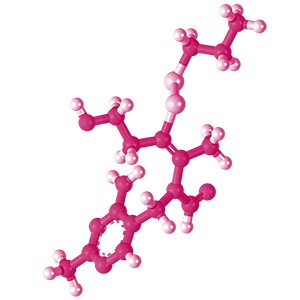Displacing traditional methods of production Via Precision Fermentation
We are on the cusp of the deepest, fastest, most consequential change to how we as humans manufacture things since the industrial revolution. Our technology is a result of rapid advances in biology, genomics, and computing power that have allowed us to employ fermentation to make almost a limitless number of products.
Discovering health via our proprietary A.I. miner

Building a best-in-class, in-silico discovery engine to connect clinical outcomes to natural products via artificial intelligence and machine learning
1.
Target
Selection

2.
Clinical Data Search

3.
Molecule Prediction

4.
Match
Maker

5.
Validation And Data Analysis


Proprietary,
A.I.-Based, In-Silico Enzyme Optimization
Protein discovery and design performed de novo at a computer before a sequence ever sees a bench.
Biochemistry and Protein Engineering
The biochemistry group leverages established and innovative technologies for protein discovery, characterization, and engineering. By using traditional and AI-based approaches for the discovery of proteins with novel characteristics and diverse sequences, we cast a wider net to find suitable templates for engineering. Once identified and characterized, we improve enzymes’ properties (activity, selectivity, stability, etc.) via a fully integrated set of inhouse tools and approaches. Modeling proteins’ 3D structures reveals information about their physical features and interactions with other molecules; information that we use to inform and focus our engineering strategies. Depending on the property to improve, we select from a variety of classical and ML-driven strategies for the design of mutant libraries ranging from predicting individual mutations to targeting specific regions to recombining multiple templates. Our full-stack, in-house analytical capabilities allow for rapid turnaround times, augmenting our high-throughput culturing and screening platforms and resulting in more efficient design-build-test cycles.
Biochemistry and
Protein Engineering
Strain Engineering
We take an organism agnostic approach to develop cell factories for production of valuable products. What does that mean? Instead of forcing a nonnative process into a lab-friendly micro-organism like E. coli or S. cerevisiae, we look to nature for microorganisms that are naturally equipped with the foundational biochemistry to produce the target molecule of interest while ensuring those organisms can scale commercially. With this mind-set, we have brought together a team of scientists with over 50 years of experience designing and engineering a variety of non-conventional microorganisms to commercially produce both commodity and high-value products. We have deep expertise in both metabolic engineering and synthetic biology tool development that we apply to develop state-of-the-art cell factories. Combining this expertise with innovative, novel enzymes from our protein engineering team, data from high-throughput assays and our world-class in-house fermentation team, we are able to rapidly re-iterate strain builds to make leaps in productivity, greatly reducing the time from ideation to commercial scale.
Strain Engineering
Bioprocessing From Screening to Scale
Utilizing high-throughput fermentation screening Cellibre can rapidly select the best performing strains. In addition, our 2-10 L fermentation farm is used both to test our most productive cell factories and for process optimization to improve the productivity, titer, and yield for each target molecule at scale. Our state-of-the-art, food-grade pilot facility is capable of producing kilogram quantities of material for downstream process development and product sample generation.
The modular and standardized nature of our downstream unit operations allows for flexible and efficient purification and isolation of a wide range of molecules from fermentation broth. Our pilot plant operations can be easily adapted to fit varying product volumes, reducing development times and enabling a faster time-to-market.
Bioprocessing From
Screening to Scale
Data Drives Design
For protein engineering, the use of high-fidelity DNA synthesis results in targeted libraries that fit our complex designs and yield clean data sets ideal for our proprietary machine learning in silico tools. These iterative data models improve in accuracy with each round and find mutational effects that couldn’t be predicted otherwise.
Strain engineering is guided by data. The iterative design-build-test cycle is driven by thorough analysis of data from our high-throughput assays and fermentation team. Furthermore, data from omics pipelines and in-house genome sequencing identify novel targets and direct our genome engineering efforts.
Each step in our process, from protein engineering to downstream processing, requires the analysis of not only cannabinoids, but also lipids, organic acids, amino acids, and other compounds. Our analytical infrastructure, which includes a host of liquid and gas chromatographs with accurate-mass detection, allow Cellibre’s high-throughput Analytical Chemistry group to support all aspects of research. Establishing a multitude of in-house capabilities allows our research to progress at a rapid pace.
Data Drives Design
Products by Nature for Nature
Reinventing how we make things for a more symbiotic future.
Our Products